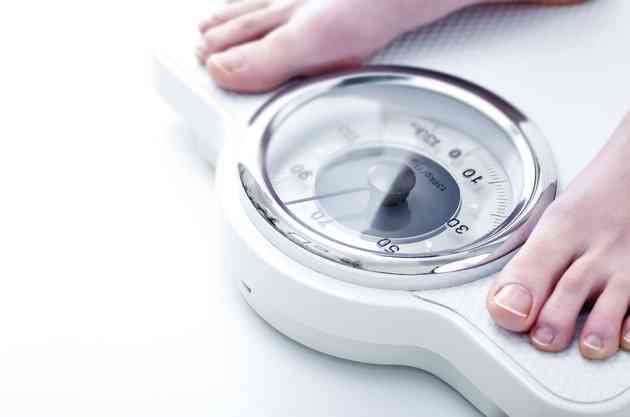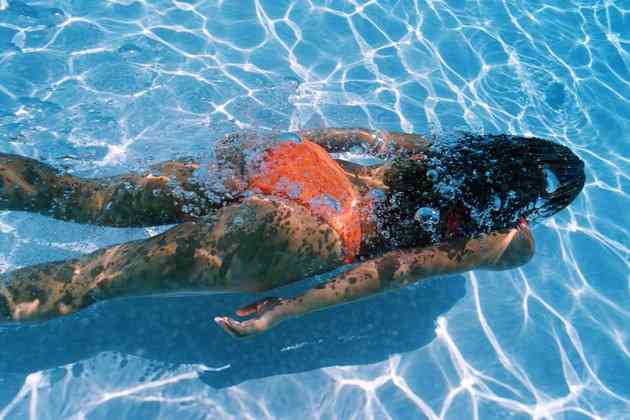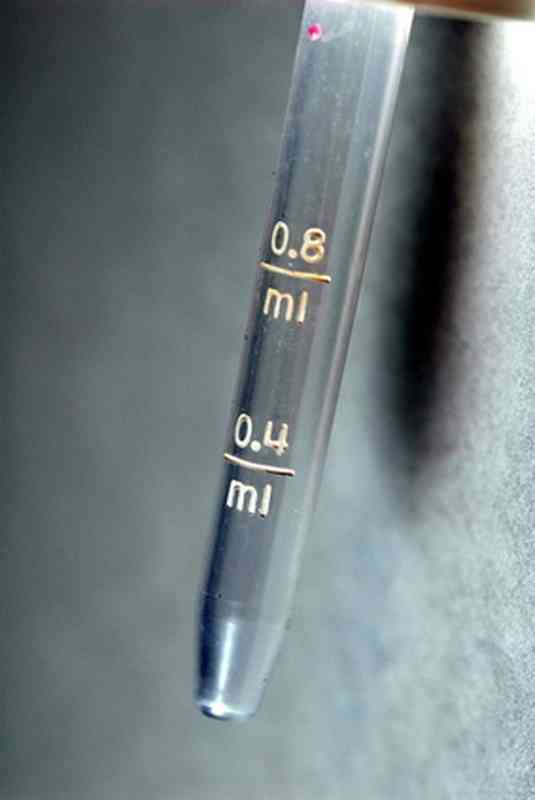How Does Sweating Make You Lose Weight?

Sweat happens. Throughout every day of your life, you exude a watery blend of urea, salts, sugars and ammonia from your pores. Most people presume that when you sweat, you lose weight. It's true that when you sweat, you shed some weight. However, most of the weight you lose is water weight, and you regain that as soon as you rehydrate. Any real weight loss that occurs when you sweat happens because of what you are doing that makes you sweat, and not because of the sweating.
 Feet on bathroom scale (Image: MichaelNivelet/iStock/Getty Images)
Feet on bathroom scale (Image: MichaelNivelet/iStock/Getty Images)Structure and Function
Between 2 and 4 million sweat glands, buried in the lower layers of your skin, continuously secrete water and electrolytes to the skin's surface. The palms of your hands and soles of your feet are densely packed with sweat glands, containing as many as 3,000 glands per square inch. Your genital area and armpits also have a high density of sweat glands. Eccrine sweat glands, distributed over most of your body, help regulate your body temperature. When your internal temperature rises, your eccrine glands release water to the skin's surface, cooling the skin by evaporation. Apocrine sweat glands, typically located near hair follicles located under your arms and in your genital area, as well as in several other areas, constantly release a fatty sweat. Apocrine sweat glands have no known function. They appear to be genetic remnants of sexual scent glands, reports the Sweating.ca website. Apocrine sweat glands are triggered by emotional stress.
Causes
You sweat when your brain tells you to sweat. The hypothalamus, a tiny structure in your midbrain, collects information about your body's temperature from nerves in your skin and from other parts of your body. When your body temperature rises, your hypothalamus sends a message through your sympathetic nervous system to your sweat glands. A variety of situations can trigger your hypothalamus to turn your sweat glands on. A warm climate, exercise, humidity and spicy food cause your body to heat up, which triggers sweat.
The hypothalamus also regulates your responses to stress and emotional arousal. When you perceive there is some sort of threat, your hypothalamus signals the adrenal and pituitary glands to release stress hormones. These hormones increase your emotional and physiological arousal, causing what is often called the “fight or flight” response. This is a state of anticipatory arousal that prepares you for exertion. Since this is a generalized response, modulated by hormones that affect all parts of your body, you produce the most sweat in the locations where you have the greatest number of sweat glands: your scalp, hands, feet and underarms.
Perspiration Weight Loss
People differ in how much they sweat, but on average, people lose 1 to 1.5 pounds of water by sweating each day. If you live in a hotter climate, exercise more or have a less efficient thermoregulatory thermostat, you might lose more weight through perspiration. Stew Smith reports at Military.com that during three to four hours of ocean swimming, most of his Navy seal class lost 10 to 15 pounds by sweating. Weight lost through sweating is mostly water weight. Urea, salts, sugars and ammonia -- waste byproducts of nitrogen metabolism -- contribute a negligible amount of weight to your loss.
Temporary Weight Loss
Athletes who want to qualify for a certain weight class induce sweating to accelerate temporary weight loss. Some wear sweatsuits or garbage bags, or sit for hours in a sauna to drop pounds. In a 2008 article posted on the website eliteFTS.com, power lifter Matt Kroczaleski describes a protocol he uses to temporarily drop as much as 15 percent of his body weight. Few medical practitioners would recommend Kroczaleski's approach, as it places stress on the body and creates health risks. If you are interested in true, long-term weight loss, do cardio to burn calories, and count on your sweat to cool you off, but not slim you down.




